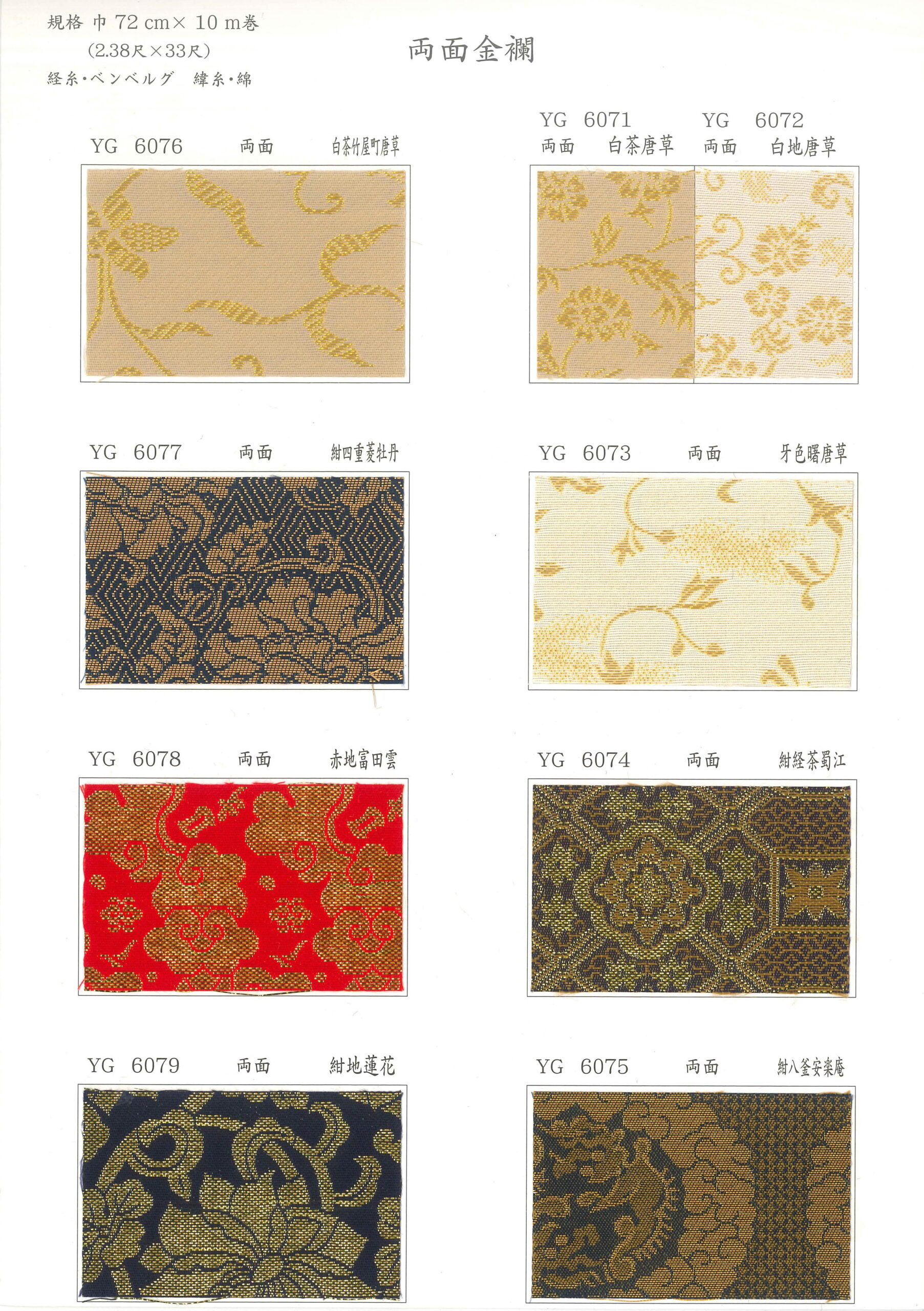■ Takeyamachi Kinran (71cm✕1.5m & 5.0m Bemberg ✕ Silk)
Since the Muromachi Era , it has been woven actively in Takeya-machi, Kyoto, and the fabric has come to be called Takeya-machi Kinran because it produced gold fabric that is not inferior to the imported products. There are 8 different Karakusa (arabesque) patterns.
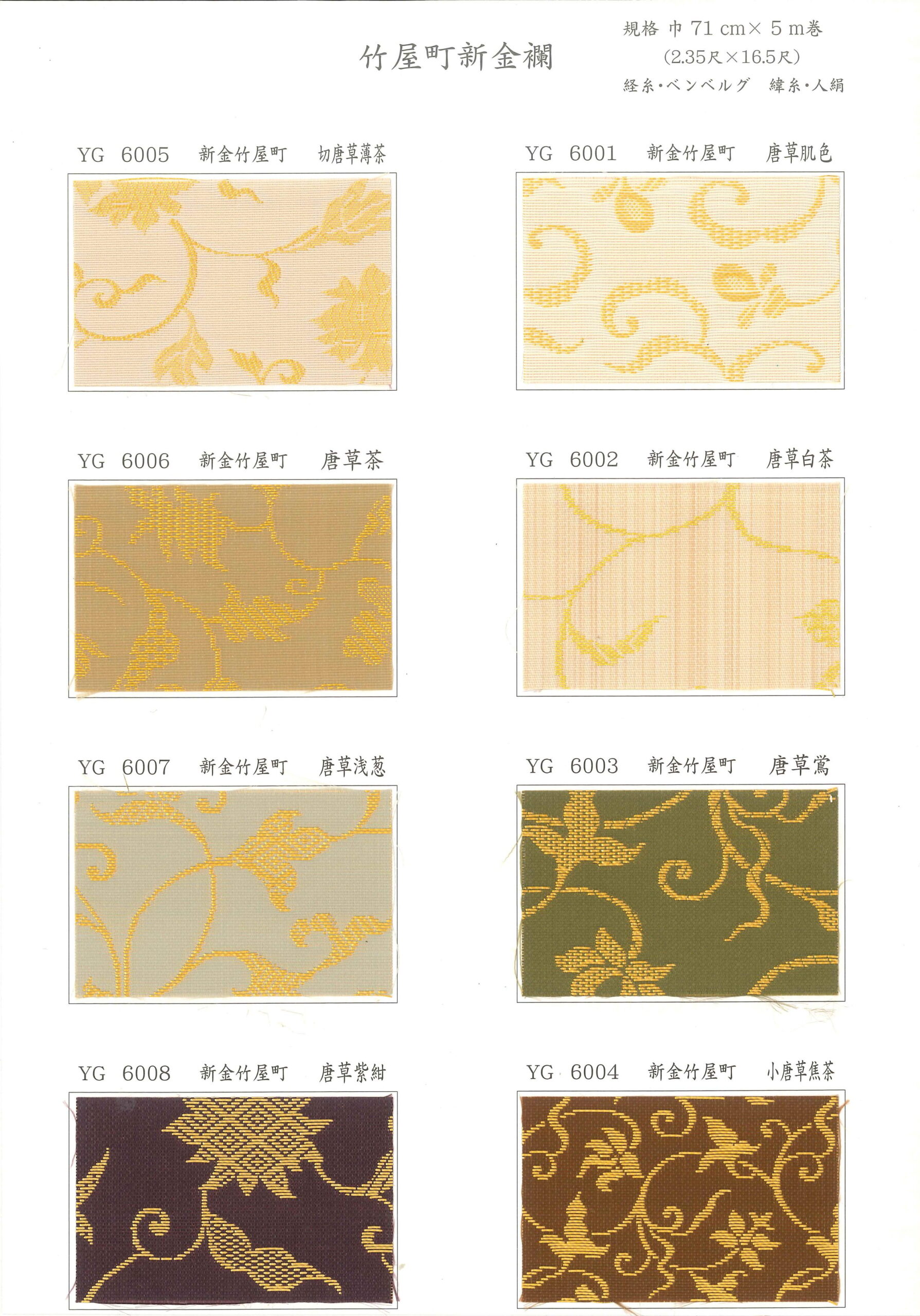
■ Ichimonji Kinran (71cm✕1.5m & 5.0m Bemberg ✕ Silk)
We have prepared 16 popular Ichimonji gold fabric used on the top and bottom of this hanging scroll.
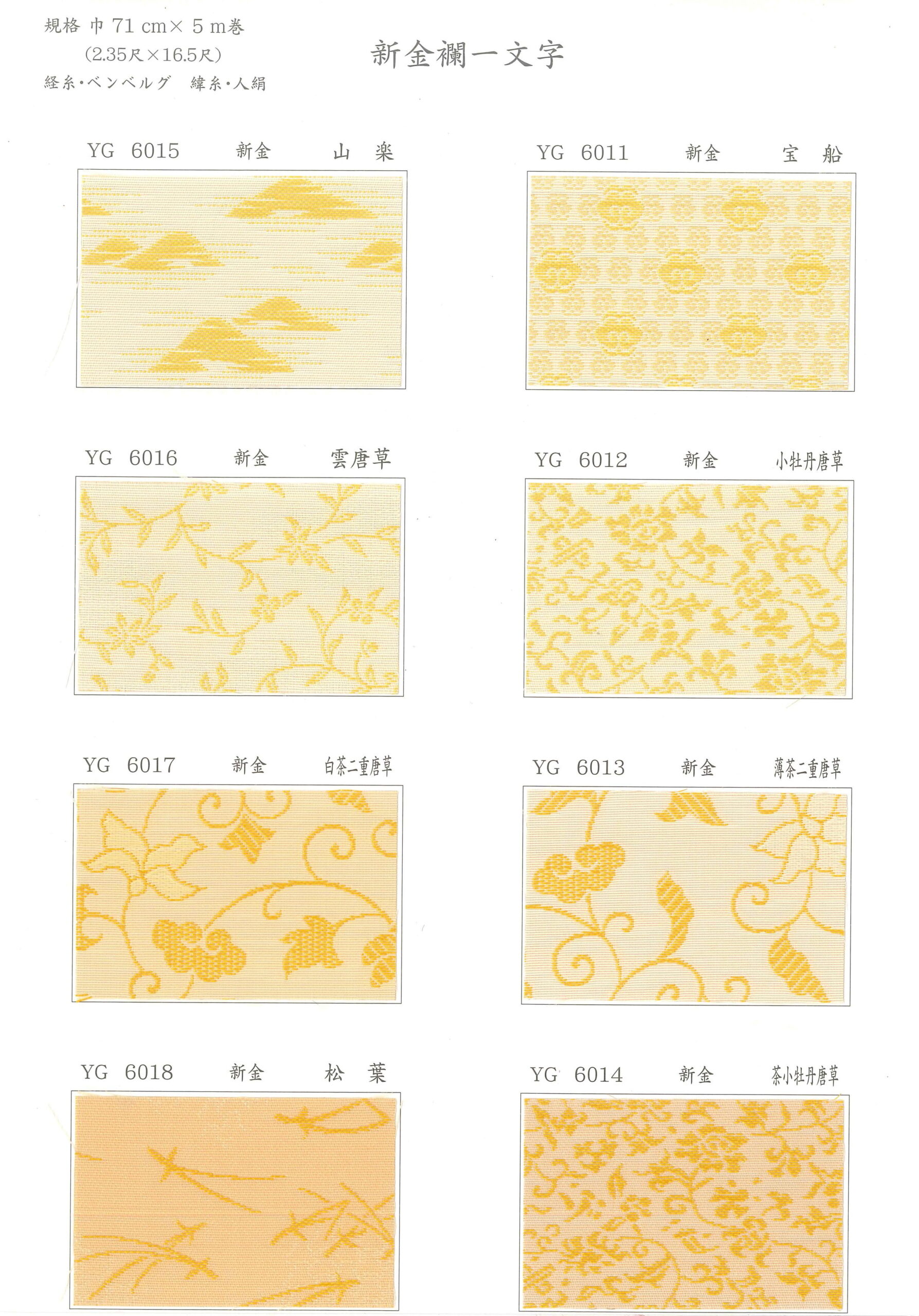
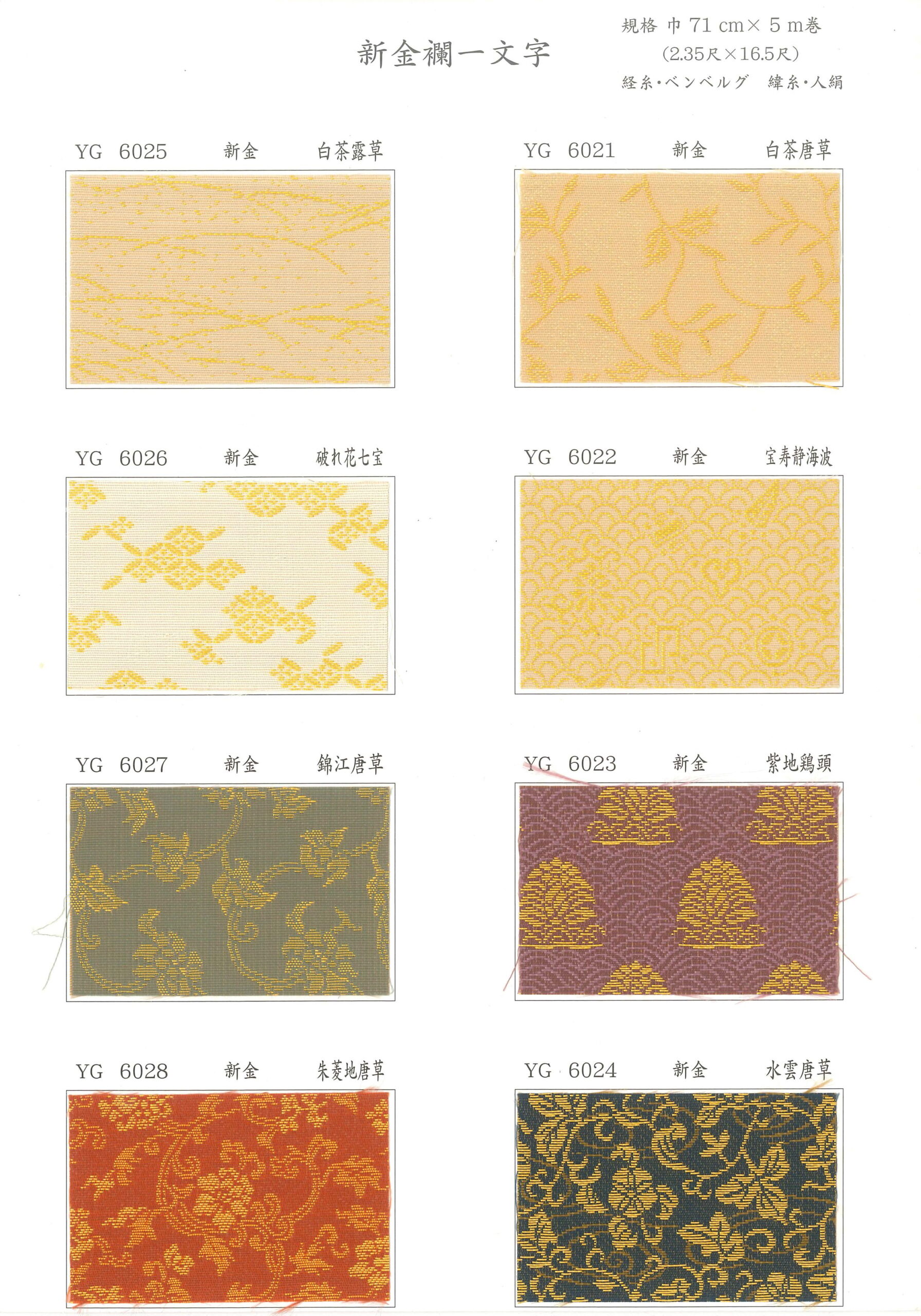
■ Nakamawashi Kinran (71cm✕5.0m Bemberg ✕ Silk)
Eight kinds of gold fabric that are popular for Nakamawashi (or Chumawashi), which are used to surround the painting or callgraphy work . In addition to various peony patterns, there are patterns of peony arabesque.
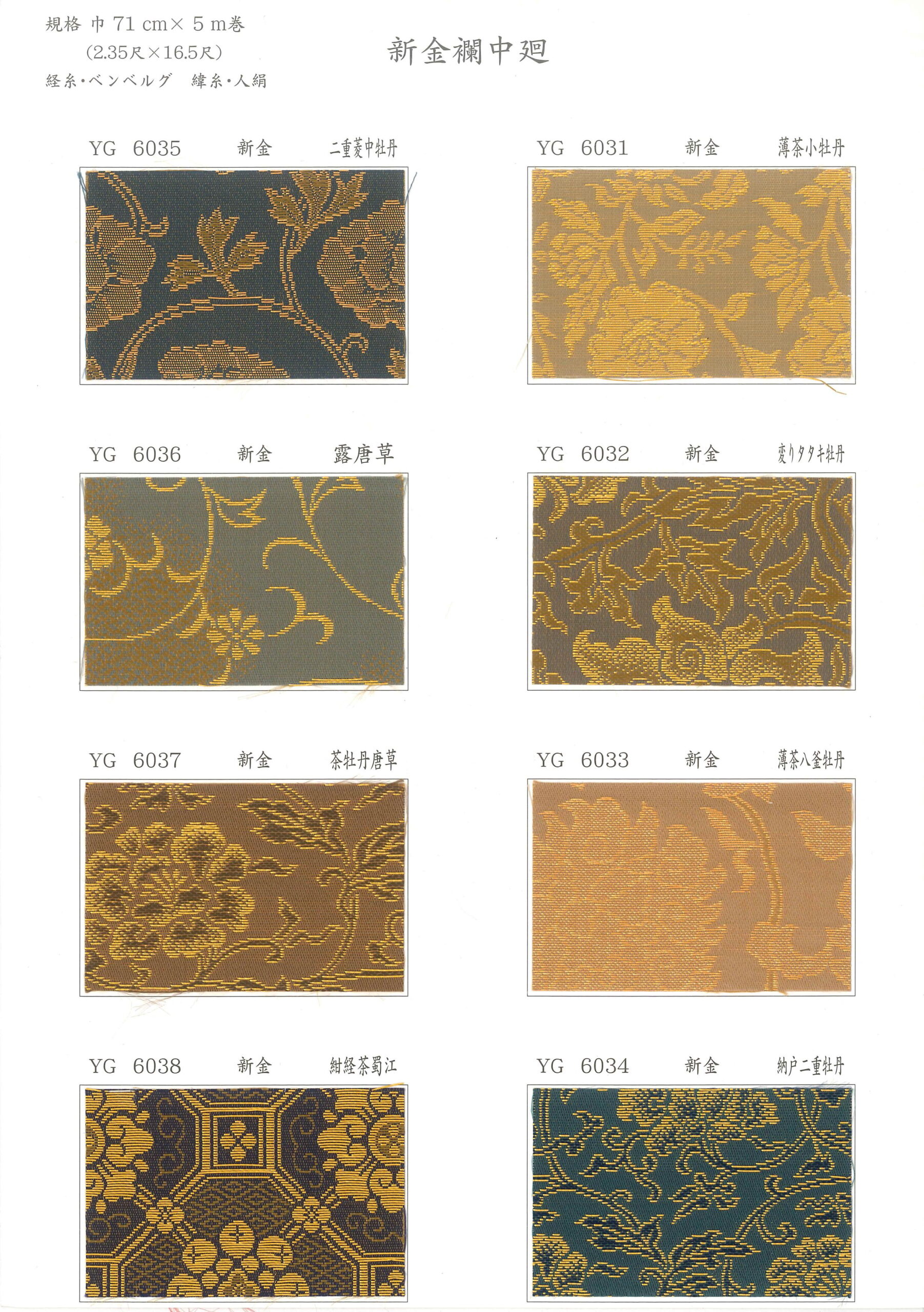
■ Buddha Kinran(71cm✕10m Bemberg ✕ Silk)
For Buddha Kinran Kinran, small peony, Tomita cloud, lotus flower, especially Yabishi peony and Otani peony at Higashi (East) Honganji religion and Paulownia-Wiseria and small paulownia at Nishi (West) Honganji religion are used. Please contact us as the size of the pattern is not included in the catalogue. There is also a 5m roll for YG6051-6053.
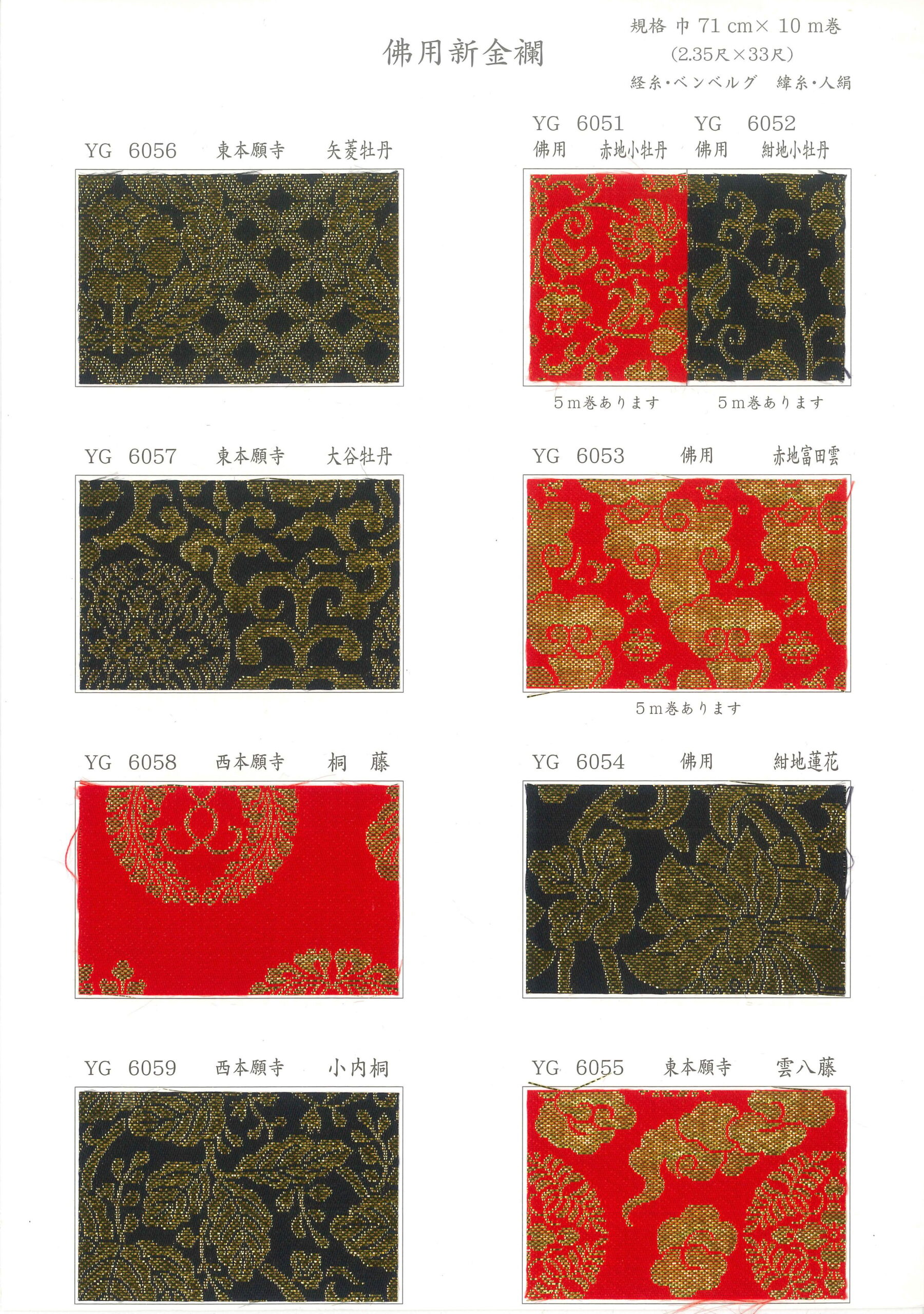
■ Double-sided Kinran (72cm✕10m Bemberg ✕ Cotton)
Double-sided gold Kinran, which is easy to weave by machine because there is no front and back, is more economical than normal Kinran, including the fact that the warp is cotton instead of Silk. On the other hand, since the gold thread also comes into contact with the adhesive surface, it is inferior to normal Kinran in terms of construction and finish.
